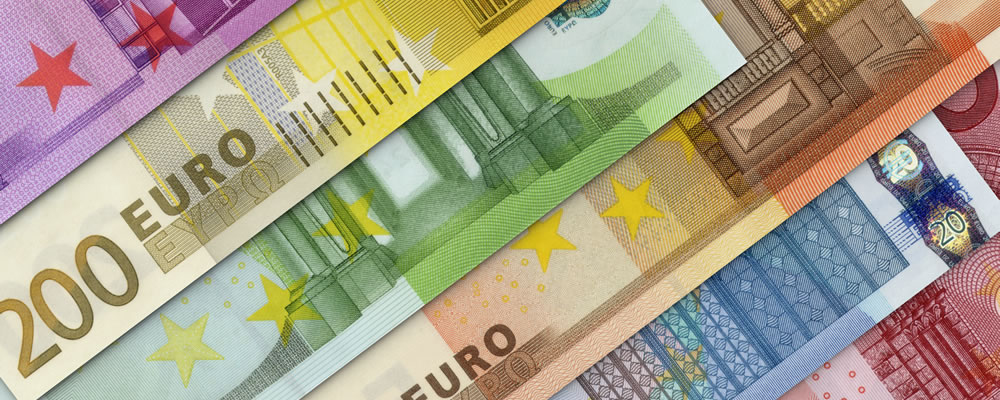Euro Flat against Pound as UK Monthly GDP Dips and Trade Gap Widens
Today the Euro is holding steady against the Pound in spite of some very mixed UK economic statistics being released this morning.
Monthly GDP growth in Britain was reported to be flatlining at 0% in August, down from 0.4% the month before and below expectations of a 0.1% rise.
Markets have not reacted strongly to this disappointing result, however, with monthly readings being considered too volatile to provide a reliable indication of the state of the economy.
In fact, GDP figures for the summer period were adjusted upwards to 0.7%, meaning overall growth levels still remain on-forecast.
Nevertheless, there was further disappointing news in the form of the UK trade balance in August, which sank to -£1.274bn, down from -£0.572bn the month before.
The report from the Office for National Statistics also revealed Britain’s builders were hit particularly hard, with the construction sector contracting by some 0.7%, while the all-important service sector failed to show any growth.
Pound Remains Strong against Euro (GBP/EUR) despite IMF Report Criticism
The Euro spent much of yesterday’s session advancing against the Pound but pulled back in late trade as Brexit sentiment rose again.
The Pound managed to stay ahead of the Euro despite some criticism from the IMF, with officials explicitly warning that Brexit could harm UK and Eurozone economic growth, saying:
‘The possible failure of Brexit negotiations poses another risk.
‘An intensification of trade tensions and the associated further rise in policy uncertainty could dent business and financial market sentiment, trigger financial market volatility, and slow investment and trade.’
There have been more stern words from the IMF today, with the international body stating that the UK’s public finances are among the worst in the world.
Figures revealed by the IMF showed the UK government has £5tn in liabilities, but less than £3tn in assets, leaving it with a negative net worth of more than £2tn. The liabilities are mostly in the form of debt and future pension obligations, with the only European country scoring worse than the UK being Portugal.
Italian Budget Impasse Still an Issue for Euro Traders
Euro traders have been disappointed to see Italy’s coalition government display no real signs of agreeing to the EU’s demands to rein in its budget deficit.
The issue remains with Italy’s proposed budget, which exceeds the EU’s deficit limit rules, and with both sides refusing to accommodate the other EUR investors remain nervous that the disagreement could spiral out of control.
This fear has been mirrored in bond markets, with Italian bond yields climbing markedly over the last few days indicating mounting levels of risk.
But the concerns were brushed aside by Italian Finance Minister Giovanni Tria who struck a conciliatory tone, saying the situation was not as bad as some fear:
‘Although so far there hasn’t been an explosion as some feared, we are of course worried.
‘As a responsible government, we aim to explain the budget and thus guide investors in our meetings in order to calm markets.’
EUR/GBP Outlook: ECB Monetary Policy in the Frame
For Euro traders, the next major data release will be Thursday’s European Central Bank (ECB) monetary policy meeting accounts.
These are expected to reveal what policymakers said at their latest meeting and traders will be looking for signs of any support for higher interest rates in the future.
As with the Bank of England (BoE), an ECB interest rate hike is expected in 2019, and any sign that higher rates are on the way will be enough to boost Euro demand.



